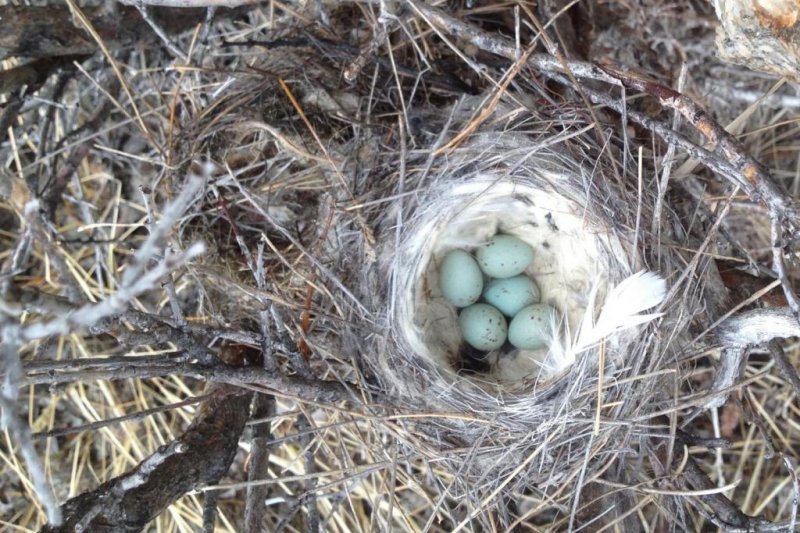The laying of bird eggs is one of the many ecological clues scientists use to measure the arrival of spring. Photo by Eric Post/UC Davis
March 2 (UPI) -- There are no groundhogs living in Arctic, but if there were, they wouldn't be spotting their shadow. Spring is arriving earlier across the globe, but its coming especially early at the poles.
According to a new paper published in the journal Scientific Reports, the farther away one moves from the equator, the earlier one will encounter spring.
In the Southern United States, for example, spring may be arriving just a couple of days earlier than it did 10 years ago, but in New England, spring is arriving several days earlier than it did a decade ago. In the Arctic, spring is likely to arrive more than two weeks earlier than it did in the mid-aughts.
"This study verifies observations that have been circulating in the scientific community and popular reports for years," Eric Post, a polar ecologist at the University of California, Davis, said in a news release. "Yes, spring is arriving earlier, and the Arctic is experiencing greater advances of spring than lower latitudes. What our study adds is that we connect such differences to more rapid springtime warming at higher latitudes."
Scientists use phenology, the study of plant and animal life cycle events, to determined the beginning of springtime. Bird migrations, flower blooms, mating calls and more can be used to measure the arrival of spring.
Spring's signatures suggest the season is arriving earlier in response to rising global temperatures. Scientists have dubbed the phenomenon springtime advance.
To measure the relationship between springtime advance and geography, scientists surveyed the results of some 743 studies investigating springtime advance throughout the Northern Hemisphere over the last 86 years. The analysis revealed a strong correlation between higher latitudes and earlier springs.
Scientists aren't sure of the ecological consequences of springtime advance, but ecologists have suggested the phenomenon could cause problems for migratory birds.
"Whatever cues they're relying on to move northward for spring might not be reliable predictors of food availability once they get there if the onset of spring at these higher latitudes is amplified by future warming," Post said. "The springtime emergence of the plants and insects they'll eat when they arrive is happening faster than the changes at the lower latitudes those birds are departing from."















